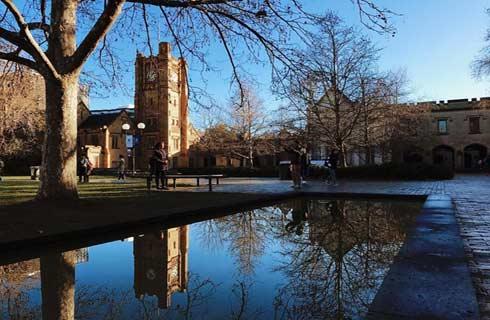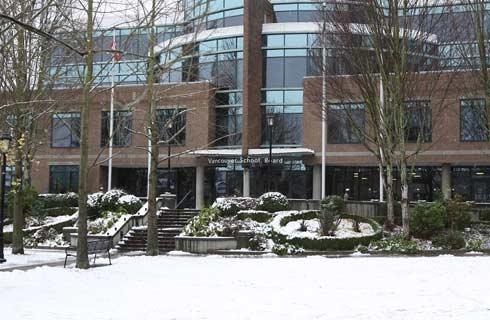Bachelor of Science in Nuclear Engineering

学历文凭
Bachelor Degree

专业院系
核工程

开学时间

课程时长

课程学费

国际学生入学条件
Freshman applicants must submit official secondary school mark sheets and diploma. Mailed documents must be originals or copies certified by the school principal or controller of examinations and sealed in a school envelope. Documents not in English must be translated by a certified translator. Official transcripts are also accepted by email if sent directly from the school principal or registrar. Students who do not meet minimum English proficiency requirements may apply for conditional admission, during which time they will need to be enrolled in an intensive English program, such as ISU’s IEI program, in preparation for full-time academic study at ISU. Have graduated from a high school or secondary school with satisfactory grades, received a diploma or certificate of graduation, and be eligible for admission to a major university in the country from which they graduated. Have an estimated GPA of 2.25
IDP—雅思考试联合主办方

雅思考试总分
5.5
了解更多
- 雅思总分:5.5
- 托福网考总分:61
- 托福笔试总分:500
- 其他语言考试:Duolingo – 85
CRICOS代码:
申请截止日期:请 与IDP联系 以获取详细信息。
课程简介
ISU offers a B.S. degree in Nuclear Engineering and M.S. and Ph.D. degrees in Nuclear Science and Engineering. The field of nuclear engineering involves harnessing the energy of the atomic nucleus for many productive applications, such as electricity production in nuclear power plants and medical diagnostics and treatment using radiation from the nucleus. The B.S. degree coursework plan provides for development of a strong foundation in mathematics and the physical sciences in the first few semesters. Upon this foundation are built the key components of nuclear engineering: nuclear and radiation physics, radiation detection and measurement, reactor physics and kinetics, nuclear power production, and the nuclear fuel cycle. <br><br>The B.S. degree in nuclear engineering will prepare the student for work in industry, government, and university settings in areas such as nuclear facility operations and support, reactor design and development, radioactive waste management, and nuclear security and safeguards. Nuclear engineering is a field with exciting and expanding opportunities. Careers range from operating nuclear power plants to research for the future of nuclear reactor design, nuclear fuels, reprocessing and waste disposal. Other areas include space propulsion, medical treatment and homeland security applications. Job prospects in nuclear engineering are good, with opportunities as close as the Idaho National Laboratory (INL) and spanning across the U.S. and the world.
相关申请

预科

奖学金

实习机会

在校学习

跨境学习

校园授课-线上开始

在线/远程学习
本校相关课程
应用科学学士

学历文凭
Bachelor Degree
下一个开始日期
课程费用总额
消防管理理学学士

学历文凭
Bachelor Degree
下一个开始日期
课程费用总额
Bachelor of Science in Health Science

学历文凭
Bachelor Degree
下一个开始日期
课程费用总额
Bachelor of Science in Health Physics

学历文凭
Bachelor Degree
下一个开始日期
课程费用总额
护理科学学士-传统

学历文凭
Bachelor Degree
下一个开始日期
课程费用总额
Bachelor of Science in Dental Hygiene

学历文凭
Bachelor Degree
下一个开始日期
课程费用总额
其他相关课程
核工程学硕士

安大略理工大学
泰晤士高等教育世界大学排名:915

学历文凭
Masters Degree
下一个开始日期
课程费用总额
核工程应用科学硕士

安大略理工大学
泰晤士高等教育世界大学排名:915

学历文凭
Masters Degree
下一个开始日期
课程费用总额
核工程哲学博士(PhD)

安大略理工大学
泰晤士高等教育世界大学排名:915

学历文凭
Ph.D.
下一个开始日期
课程费用总额
核工程学工程和管理(荣誉)学士学位

安大略理工大学
泰晤士高等教育世界大学排名:915

学历文凭
Bachelor Degree with Honours
下一个开始日期
课程费用总额
核工程学学士学位(荣誉学位)

安大略理工大学
泰晤士高等教育世界大学排名:915

学历文凭
Bachelor Degree with Honours
下一个开始日期
课程费用总额
Master of Engineering in Civil Engineering - Nuclear Engineering

滑铁卢大学
泰晤士高等教育世界大学排名:

学历文凭
Masters Degree
下一个开始日期
课程费用总额





